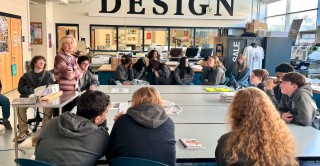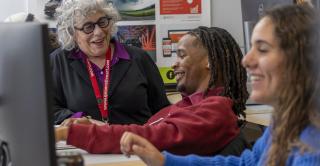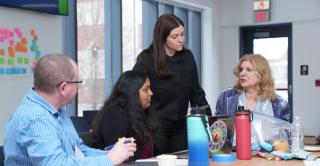
Graduates of the Bachelor of Science in Early Childhood Studies will be qualified to assume a variety of roles within the field of early childhood education and will be positioned well for continued studies in early childhood or related fields of study. Graduates will be eligible to apply for a LEVEL I (Infant Family Associate) Endorsement to the Connecticut Infant Mental Health Association (CT-AIMH), become an Early Childhood professional and a Quality Staff Member (Lead Teacher) in a state-funded early learning program, and will be positioned to enter graduate degree programs in early childhood or closely related fields.
This is an unofficial description for this program. For official information check the Academic Catalog.
Mission
The Early Childhood Studies program (birth through age 8) prepares professionals who are reflective practitioners that will be able to provide and design a child-centered developmentally appropriate learning environment, for children that is safe and nurturing; promotes and stimulates each child’s social/emotional, physical, cognitive and aesthetic development; develops high-quality early learning programs that are informed by policy, research, and practice; and prepares students to become teacher leaders, dedicated to serve as advocates for and work in a trusting, respectful, reciprocal relationship with diverse children, families, and communities.



